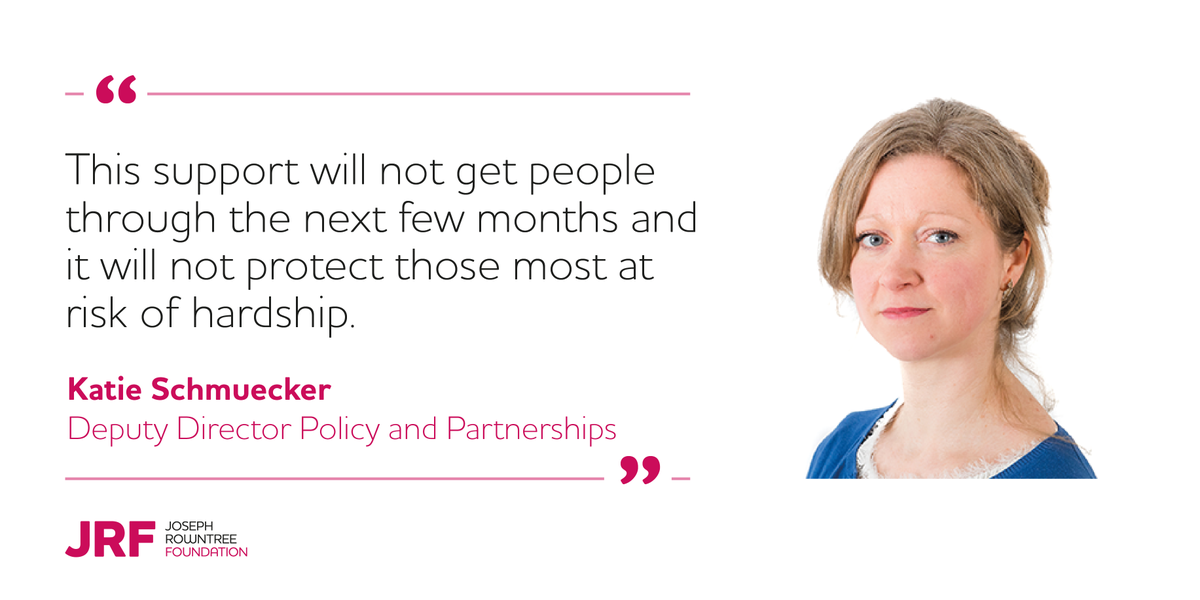
JRF's @KatieSchmuecker responds to details of the government's levelling up white paper:
"The Prime Minister has defined levelling up as delivering for the poorest, so this strategy should be assessed against its ability to reduce poverty across the country... ⬇️
"The Prime Minister has defined levelling up as delivering for the poorest, so this strategy should be assessed against its ability to reduce poverty across the country... ⬇️
"A focus on rising employment, pay and productivity will only succeed if it delivers better jobs and pay for people on the lowest incomes. To make this happen we need to see investment in skills, childcare, local transport and affordable housing... 💷👨🍼🚌🏠 

"Plans to reform the private rented sector are long overdue and really welcome to see. If done well, they will drive up standards and strengthen tenants’ rights, creating a more just housing system... 🤝🏘️
“We welcome the wide-ranging set of missions and targets but as ever, the proof will be in the delivery.
"Local areas must be trusted to make decisions about what is best for them, and crucially must be given the investment and powers they need to achieve this... 📍💷🤝
"Local areas must be trusted to make decisions about what is best for them, and crucially must be given the investment and powers they need to achieve this... 📍💷🤝
"The lack of new funding announced today, and an approach to devolution that appears to be quite centrally controlled, suggest more needs to be done before the reality of these plans meets the rhetoric." 

• • •
Missing some Tweet in this thread? You can try to
force a refresh






